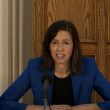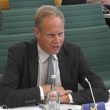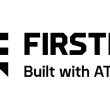FCC hearing: Smart grid, broadband growth linked
Greater deployment and adoption of broadband technology can help accelerate the growth of smart-grid technologies designed to enhance the efficient use of U.S. energy resources, participants at an FCC field hearing said yesterday.
“Smart grid and broadband are first cousins,” FCC Chairman Julius Genachowski said during the hearing hosted by the Massachusetts Institute for Technology.
Rep. Ed Markey (D-Mass.) echoed this sentiment, comparing the potential impact that the smart grid could have on the U.S. energy market to the effect that the Internet has had on the nation’s communications sector.
“The smart grid is an electricity Internet. Without the broadband revolution, you cannot have the revolution we’re talking about,” Markey said, noting that the success in these two arenas likely will determine the success of countries during the 21st century.
Many electric utilities use connectivity with the power grid to automate meter reading, which can be achieved with relatively low data throughputs. However, with a broadband connection to each electrical user, many more real-time applications can be utilized that allow power companies and consumers to have more control over energy resources, panelists said.
Currently, utilities are not aware that problems in the power grid exist until customers call complaining that they do not have electricity, panelists said. In addition, customers typically have no idea how much energy they’re using until the information arrives in their monthly bill. A broadband-driven smart grid could give utilities and consumers access to real-time information that lets both use energy more cost effectively.
Proper use of such technology could have significant ramifications, said Philip Giudice, commissioner for the Massachusetts Department of Energy Resources. Currently, 15% of the capacity in the state’s electrical grid is used only 1% of the time — a total of 88 hours per year, he said. If smart-grid technology helps allow utilities to better manage their energy resources on a real-time basis, the need for capital expenditures to expand capacity on the grid decreases.
Smarter energy usage promises benefits to the economy, as well as the environment, Giudice said.
“It’s not sacrificing our economy by doing this; it’s growing it,” he said.
Among the challenges noted by panelists are the need for smart-grid standards, cybersecurity of networks, and a regulatory environment — currently controlled more by states than the federal government — that facilitates the deployment of smart-grid technologies.

















